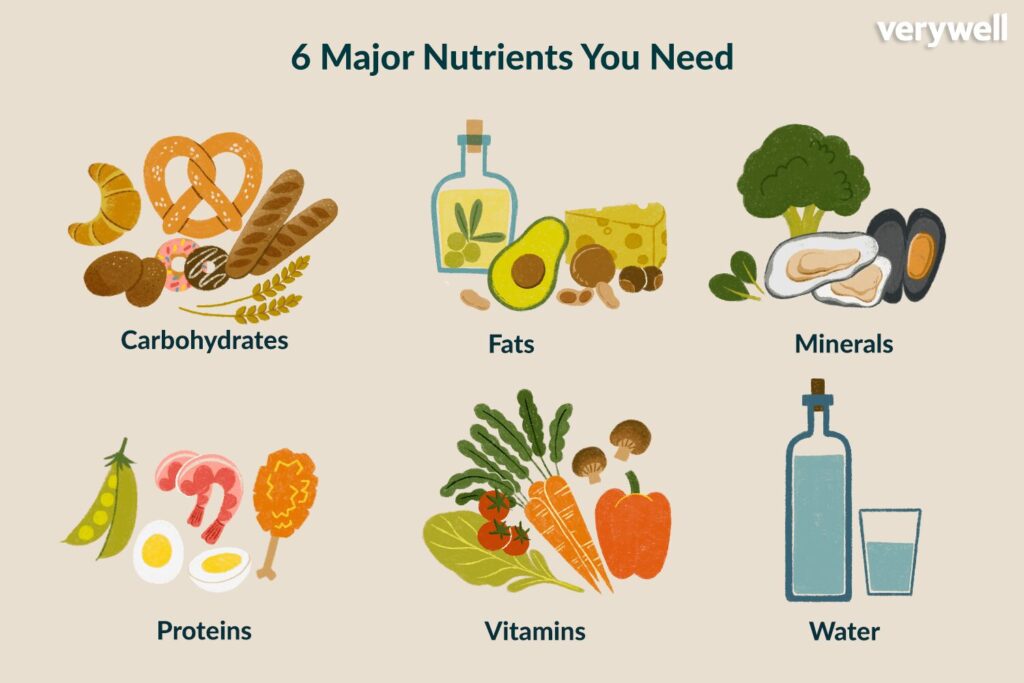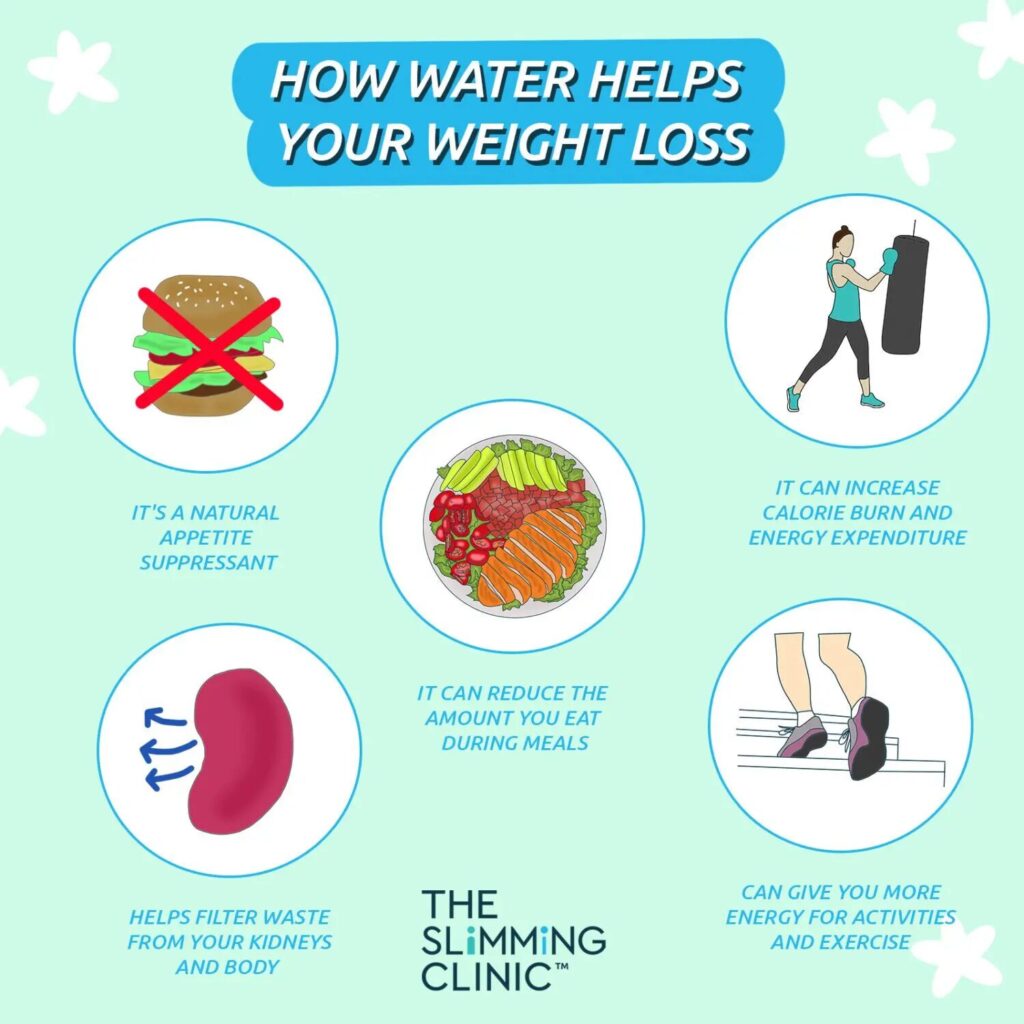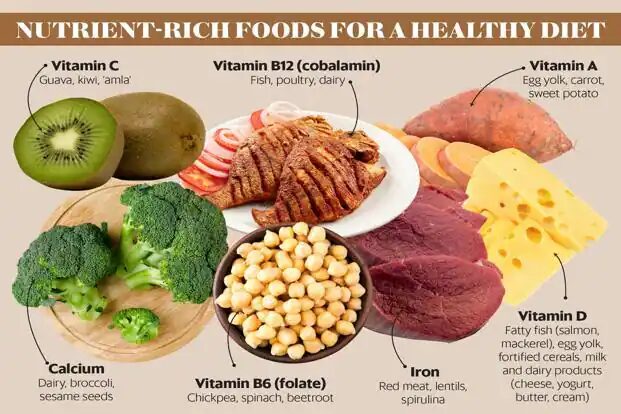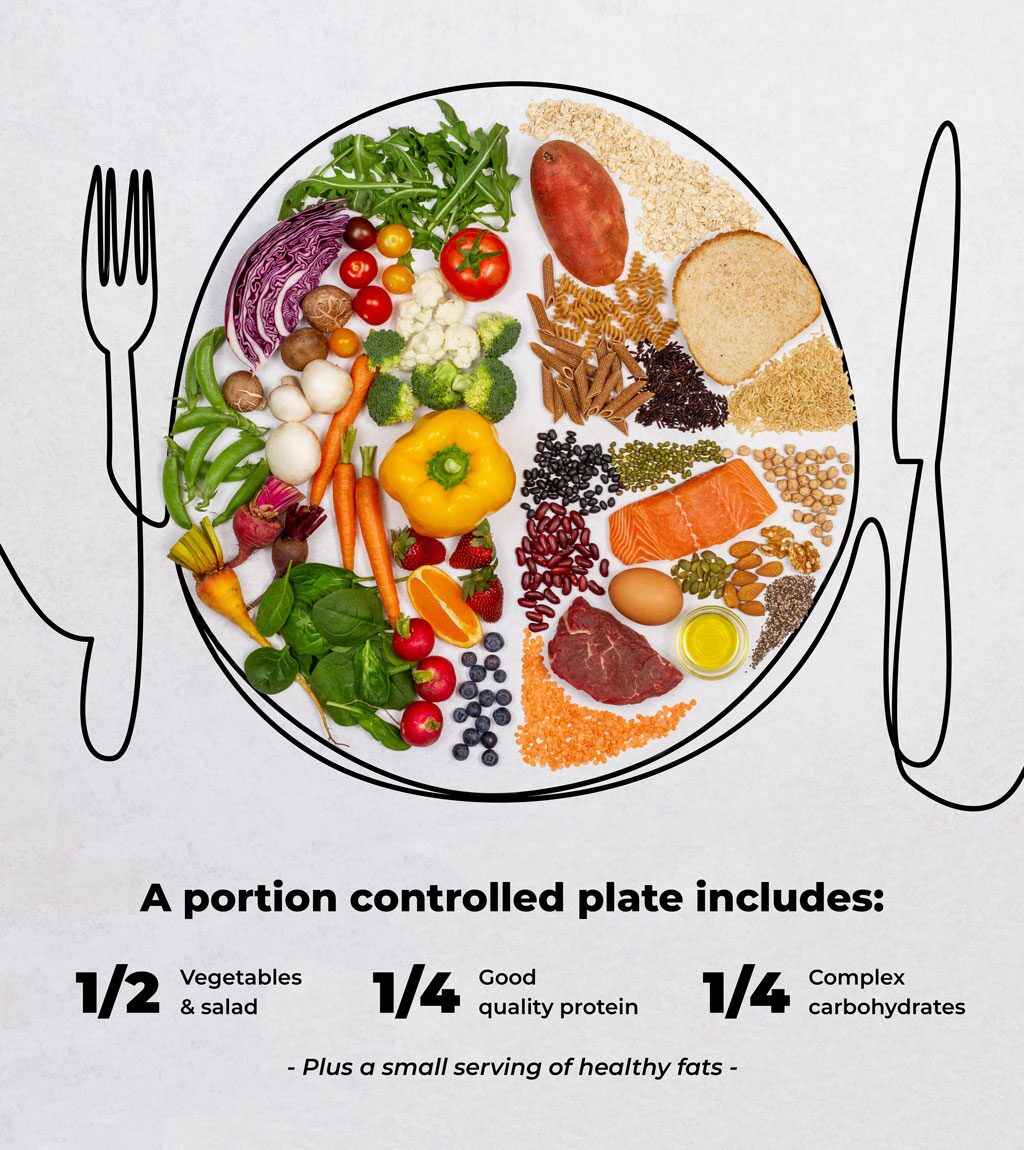Introduction to Nutrition Guidelines for Weight Management and Body Composition

When it comes to weight management and achieving optimal body composition, nutrition plays a vital role. Following effective nutrition guidelines can help you reach your goals and maintain a healthy lifestyle. In this article, we will explore the importance of understanding macronutrients, creating a balanced meal plan, and debunk common misconceptions about nutrition and weight management. By implementing these guidelines in your daily life, you can make sustainable changes that will benefit your overall health and well-being.
Understanding Macronutrients and Their Role in Weight Management
Macronutrients, including carbohydrates, proteins, and fats, are the building blocks of our diet. Each macronutrient plays a unique role in weight management and body composition. Carbohydrates are the body’s primary source of energy and should be consumed in moderation. Protein is essential for muscle building and repair, making it a crucial component of any weight management plan. Healthy fats, such as those found in avocados and nuts, provide essential fatty acids and help regulate hormone production. Understanding the role of each macronutrient in your diet will allow you to make informed choices and optimize your weight management goals.
The Importance of Calorie Balance in Achieving Weight Management Goals

Calorie balance is a critical factor in weight management. To lose weight, you need to consume fewer calories than your body burns. Conversely, if you want to gain weight, you need to consume more calories than you burn. Calculating your daily calorie needs can help you determine the appropriate calorie intake for your weight management goals. Keep in mind that a sustainable and healthy weight loss or gain rate is around 1-2 pounds per week. By maintaining a calorie balance that aligns with your goals, you can achieve effective weight management and optimize your body composition.
Creating a Balanced and Nutrient-Dense Meal Plan

A balanced and nutrient-dense meal plan is essential for effective weight management and optimal body composition. Include a variety of whole foods in your diet to ensure you’re getting a wide range of nutrients. Fill your plate with colorful fruits and vegetables, lean proteins, whole grains, and healthy fats. Aim to limit processed foods, sugary beverages, and unhealthy snacks. Meal planning and preparation can help you stay on track and make healthier choices. Prioritize portion control and listen to your body’s hunger and fullness cues. By creating a well-rounded meal plan, you can fuel your body with the nutrients it needs while achieving your weight management goals.
Key Nutrients for Weight Management and Body Composition

Certain nutrients are particularly important for weight management and body composition. Fiber-rich foods, such as whole grains, fruits, and vegetables, aid in digestion and promote satiety. Consuming adequate protein helps maintain muscle mass and supports weight loss. Additionally, incorporating healthy fats, like those found in olive oil and fatty fish, can help regulate hunger hormones and improve overall body composition. Don’t forget to stay hydrated by drinking plenty of water throughout the day. By prioritizing these key nutrients, you can optimize your weight management efforts and achieve a healthier body composition.
Conclusion and the Importance of Sustainable Approaches
In conclusion, nutrition guidelines are crucial for effective weight management and optimal body composition. By understanding macronutrients, calorie balance, and the importance of a balanced meal plan, you can make sustainable changes that will benefit your overall health. Seek professional guidance and support to personalize your nutrition guidelines and ensure they align with your unique needs and goals. It’s also essential to debunk common myths and misconceptions about nutrition and weight management. By implementing these guidelines in your daily life and making gradual and sustainable changes, you can achieve long-term success in managing your weight and improving your body composition.
Seeking Professional Guidance and Support

Achieving and maintaining a healthy weight can be challenging, especially with the abundance of information available. Seeking professional guidance and support can help you navigate through the complexities of nutrition and weight management. A registered dietitian or nutritionist can provide personalized recommendations based on your individual needs and goals. They can help you create a customized meal plan, guide you on portion control, and address any specific dietary concerns you may have. By working with a professional, you can ensure that your nutrition guidelines are tailored to your unique circumstances and increase your chances of achieving long-term success.
You May Also Like
- How to Make a Budget-Friendly Meal Plan
- How to Cook Delicious Meals with Turmeric
- The Best Vegan Recipes For Beginners
Common Myths and Misconceptions
There are many myths and misconceptions surrounding nutrition and weight management. One common myth is that certain foods or diets can magically burn fat. In reality, weight management is a result of calorie balance and overall dietary patterns. Another misconception is that carbohydrates should be completely avoided for weight loss. While it’s important to choose complex carbohydrates over refined ones, completely eliminating them from your diet is unnecessary and can lead to nutrient deficiencies. By educating yourself and debunking these myths, you can make informed decisions about your nutrition and weight management.
Implementing Nutrition Guidelines in Your Daily Life
Implementing nutrition guidelines in your daily life requires commitment and consistency. Start by setting realistic goals and making gradual changes to your eating habits. Focus on incorporating nutrient-dense foods into your meals and snacks. Meal planning and preparation can help you stay on track and avoid unhealthy choices. Remember to practice portion control and listen to your body’s hunger and fullness cues. Establishing a routine and finding healthy alternatives to your favorite indulgences can make the transition to a healthier lifestyle more manageable. By making nutrition guidelines a part of your daily routine, you can achieve effective weight management and improve your overall well-being.
Food Timing and Meal Frequency

Food timing and meal frequency can impact weight management. Some individuals find that eating smaller, more frequent meals throughout the day helps control hunger and maintain energy levels. Others prefer intermittent fasting or longer periods between meals. The key is to find a meal timing pattern that works best for you and aligns with your lifestyle. Prioritize nutrient-dense meals and snacks, regardless of the timing. By paying attention to your body’s hunger and fullness cues and finding a meal frequency that suits your needs, you can optimize your weight management efforts.
Hydration and Its Impact on Weight Management

Staying hydrated is essential for overall health and weight management. Water helps regulate body temperature, aids digestion, and promotes satiety. Sometimes, thirst can be mistaken for hunger, leading to unnecessary snacking. Aim to drink at least 8 glasses of water per day and increase your intake during physical activity or in hot weather. Consider incorporating herbal teas or infusing water with fruits for added flavor. By staying properly hydrated, you can support your weight management goals and maintain optimal body composition.
Micronutrients and Their Importance

While macronutrients often take center stage, micronutrients are equally important for overall health and weight management. Vitamins and minerals play a vital role in various bodily functions, including metabolism and energy production. Consuming a wide variety of fruits, vegetables, whole grains, lean proteins, and healthy fats will ensure you receive an adequate supply of essential micronutrients. If you have specific deficiencies or dietary restrictions, consult with a healthcare professional to determine if supplementation is necessary. By prioritizing micronutrients in your diet, you can support your weight management goals and maintain optimal health.
The Truth About Fats
Fats have long been demonized as the enemy of weight management. However, not all fats are created equal. Healthy fats, such as those found in avocados, nuts, and olive oil, are essential for overall health and should be included in a balanced diet. They provide essential fatty acids, help absorb fat-soluble vitamins, and promote satiety. On the other hand, trans fats and saturated fats, typically found in processed and fried foods, should be limited as they can increase the risk of heart disease and hinder weight management efforts. By understanding the difference between healthy and unhealthy fats, you can make informed choices and prioritize your overall health.
Calorie Counting and Portion Control

Calorie counting and portion control are effective strategies for weight management. While counting every calorie may not be necessary, being mindful of portion sizes can help you maintain a calorie balance. Use measuring cups or a food scale to accurately portion your meals. Pay attention to serving sizes listed on nutrition labels and be mindful of portion distortion when dining out. Practice mindful eating by savoring each bite and listening to your body’s cues of hunger and fullness. By practicing portion control and being mindful of your calorie intake, you can effectively manage your weight and achieve your body composition goals.
The Importance of a Balanced Diet
A balanced diet is key to successful weight management and optimal body composition. Instead of focusing on specific foods or restrictive diets, aim for a well-rounded approach that includes all food groups. Include a variety of fruits, vegetables, whole grains, lean proteins, and healthy fats in your meals. Moderation is key when it comes to indulgent foods or treats. By creating a balanced diet that provides all the necessary nutrients, you can achieve effective weight management and improve your overall well-being.
The Role of Protein in Weight Management
Protein is an essential macronutrient for weight management and muscle building. It helps preserve lean muscle mass, which is important for overall body composition. Including adequate protein in your meals and snacks can increase feelings of fullness and help control cravings. Good sources of protein include lean meats, poultry, fish, legumes, and dairy products. If you follow a vegetarian or vegan diet, incorporate plant-based protein sources such as tofu, tempeh, and quinoa. By prioritizing protein in your diet, you can support your weight management goals and promote muscle growth.
The Impact of Carbohydrates on Energy Levels and Weight
Carbohydrates are the body’s primary source of energy and play a crucial role in weight management. Consuming complex carbohydrates, such as whole grains, fruits, and vegetables, provides sustained energy and promotes satiety. On the other hand, refined carbohydrates, including white bread and sugary snacks, can lead to energy crashes and weight gain. It’s important to choose carbohydrates wisely and focus on those that provide essential nutrients and fiber. Balancing your carbohydrate intake with protein and healthy fats can help stabilize blood sugar levels and support your weight management efforts.
Macronutrients and Their Importance in Optimal Body Composition
Macronutrients are essential for achieving optimal body composition. Balancing your intake of carbohydrates, proteins, and fats can help you maintain a healthy weight and promote muscle growth. Consuming an adequate amount of each macronutrient is crucial for achieving your body composition goals. Prioritize nutrient-dense carbohydrates, lean proteins, and healthy fats in your meals. By understanding the importance of macronutrients and their impact on body composition, you can make informed choices and optimize your weight management journey.
The Role of Nutrition in Weight Management
Nutrition is a fundamental component of weight management. While exercise is important for overall health and fitness, the foundation of successful weight management lies in the kitchen. By fueling your body with the right nutrients, you can support your weight management goals and optimize your body composition. Focus on creating a balanced meal plan that includes a variety of whole foods and macronutrients. Stay mindful of portion sizes and be consistent with your nutrition guidelines. By prioritizing nutrition, you can achieve long-term success in managing your weight and improving your overall well-being.
Conclusion
In conclusion, following nutrition guidelines is essential for effective weight management and achieving optimal body composition. By understanding macronutrients, calorie balance, and the importance of a balanced meal plan, you can make sustainable changes and reach your goals. Seek professional guidance and support to personalize your nutrition guidelines and address any specific concerns. Debunk common myths and misconceptions about nutrition and weight management to make informed choices. Implement nutrition guidelines in your daily life, stay hydrated, and prioritize key nutrients. By making nutrition a priority and adopting a long-term approach, you can achieve effective weight management and optimize your body composition.
Consult with a registered dietitian or nutritionist to receive personalized nutrition guidelines tailored to your individual needs and goals. They can provide guidance and support to help you achieve effective weight management and optimal body composition.
Read More
- Nutrient Rich Food for Promoting Weight Management
- Healthy Eating Plans for Diabetes Management
- How To Deal With Social Anxiety: Live A Confident Life
FAQ
1. What is the best diet for weight management?
There is no single “best” diet for everyone, as individual needs and preferences vary. However, several evidence-based guidelines can help you lose weight and improve your body composition:
- Focus on nutrient-dense, whole foods: Prioritize fruits, vegetables, whole grains, lean protein, and healthy fats. Limit processed foods, sugary drinks, and unhealthy fats.
- Create a calorie deficit: Consume fewer calories than you burn to lose weight. A balanced approach is recommended, aiming for a deficit of 500-1000 calories per day for gradual weight loss.
- Control portion sizes: Use measuring tools and mindful eating practices to avoid overeating.
- Stay hydrated: Drinking plenty of water can help curb hunger and boost metabolism.
- Incorporate physical activity: Regular exercise is crucial for weight management and building muscle mass, which improves body composition.
2. How much weight can I realistically lose per week?
A safe and sustainable rate of weight loss is generally considered to be 0.5-1 pound per week. Rapid weight loss is often unsustainable and can be unhealthy.
3. Do I need to count calories to lose weight?
Counting calories can be helpful in tracking your intake and creating a calorie deficit, but it’s not essential for everyone. Focusing on portion control and healthy food choices can also be effective.
4. What about protein? Does it help with weight loss?
Protein is essential for building and maintaining muscle mass, which can boost metabolism and improve body composition. Including adequate protein in your diet can help with weight management, but consuming excessive amounts won’t magically lead to weight loss.
5. Is there a specific timeline for achieving my desired body composition?
Body composition changes take time and dedication. Setting realistic goals and focusing on healthy, sustainable habits is crucial for long-term success. Consult a healthcare professional or registered dietitian for personalized guidance on achieving your desired body composition.
6. What exercises are best for weight management and body composition?
A combination of cardio and strength training is ideal for weight management and building muscle mass. Aim for at least 150 minutes of moderate-intensity cardio per week and two or more strength training sessions targeting major muscle groups.
7. How can I manage cravings and stay motivated?
Planning your meals ahead, practicing mindful eating, and finding healthy alternatives to satisfy cravings can help. Building a support system and setting achievable goals can also boost motivation.
8. Are there any supplements I should take for weight management or body composition?
While some supplements might offer specific benefits, they should not be a substitute for a healthy diet and exercise. Consult a healthcare professional before taking any supplements for weight management or body composition.
9. Is it normal to experience occasional plateaus in weight loss?
Yes, plateaus are common during weight loss journeys. Don’t get discouraged! Reassess your calorie intake and exercise routine, make adjustments if needed, and stay consistent with your healthy habits.
10. Should I consult a healthcare professional or registered dietitian for guidance?
Absolutely! Healthcare professionals and registered dietitians can provide personalized guidance and support based on your individual needs and goals. They can help you create a safe and effective plan for weight management and body composition improvement.
Remember, these are just a few of the frequently asked questions on this topic. Always consult with a healthcare professional or registered dietitian for personalized recommendations tailored to your unique situation.


